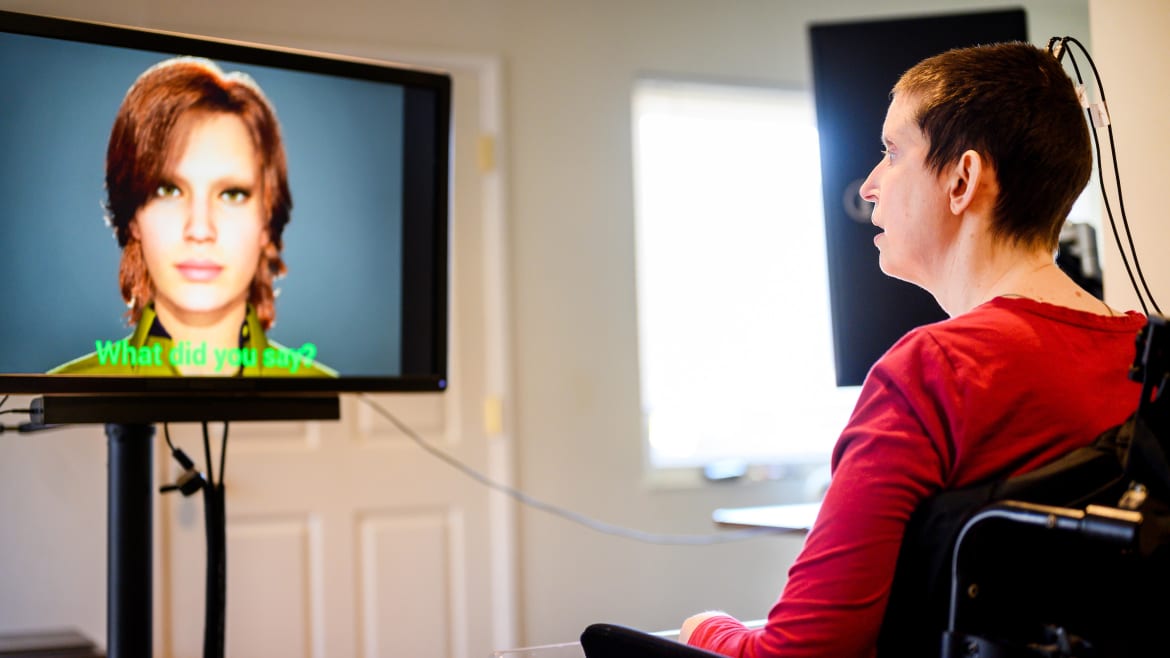Noah Berger
People who have been robbed of their ability to talk to others due to paralysis caused by conditions like stroke or ALS no longer seem destined to permanent silence. This is thanks to implants that read the brain’s electrical impulses and translate them into thoughts that can be communicated to those on the outside.
A pair of new studies published in Nature on Wednesday have moved us forward in this endeavor in very groundbreaking ways. A Stanford University team successfully demonstrated the use of a AI-powered brain implant that can read brain signals and translate them into speech at an average rate of 62 words per minute—nearly 3.5 times faster than previous records set by similar implants.
The second study, run by the University of California, San Francisco’s Chang Lab, is arguably more exciting. The lab announced the demonstration of a brain implant that can, for the first time ever, synthesize spoken words and facial expression directly from brain signals. The technology was shown to give back speech to Ann Johnson, a 48-year-old teacher who previously suffered a stroke that left her paralyzed and unable to talk. The new device now allows her to talk to others through a digital avatar that speaks and exhibits facial expressions that accurately reflect her thoughts.

